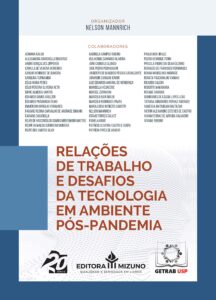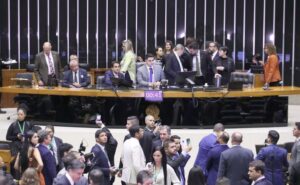Originaly published at duediligence.design
Bangladeshi workers represented by the trade union, NGWF, filed the first complaint against Tom Tailor, Amazon, and IKEA under the German Supply Chain Due Diligence Act for not “adequately monitoring” the conditions in their factories and for “endangering the workplace safety for employees.”
The complaint was filed with the Federal Office of Economics and Export Control, (BAFA), the regulator for the German Supply Chain Due Diligence Act, which will now decide whether to take further action against the companies.
ABOUT THE COMPLAINT
- In April, affected workers represented by the trade union, the National Garment Workers Federation (NGWF), with support from the European Center for Constitutional and Human Rights (ECCHR) and NGO FEMNET filed the first complaint under the German Supply Chain Due Diligence Act against Tom Tailor, Amazon, and Ikea.
- The complaint was filed with the Federal Office of Economics and Export Control, (BAFA), the regulator for the German Supply Chain Due Diligence Act. BAFA will now decide whether to take further action against the companies. This can include requiring the companies to take action to fulfil their obligations under the law and financial penalties. BAFA does not have a set timeline to address complaints.
- The case is based on research conducted in Bangladesh in March 2023 by NGWF, which identified safety deficiencies at Tom Tailor, Amazon and Ikea factories including a lack of inspections, and labour rights violations including lack of freedom of association. The complaint alleges that Tom Tailor, Amazon, and Ikea have not adequately monitored the health and safety of the factories in their supply chain in Bangladesh and that this has endangered the workplace safety for workers. We do not know which factories these are.
- The named companies are not members of the International Accord for Health and Safety in the Textile and Garment Industry (the International Accord), and the complaint claims that the failure to sign the International Accord is a deliberate avoidance to prevent known human rights risks and a breach of company due diligence duties.
- According to the ECCHR/ FEMNET joint press statement, Tom Tailor, Amazon, and IKEA have been repeatedly informed by NGOs and unions about the risks to health and safety in factories in Bangladesh and other manufacturing countries, and despite their awareness of these existing dangers, are not members of the International Accord.
- The complaint builds on a open letter published in November 2022 from FEMNET and ECCHR addressed to Tom Tailor, IKEA and Amazon and German retailer Deichmann, that demanded they sign the International Accord and “fulfil their due diligence responsibilities in the areas of occupational health and safety.” Deichmann was not included in the complaint.
UNDERSTANDING THE CASE
- The complaint claims that the named companies did not meet their obligations to carry out human rights due diligence under the German Supply Chain Due Diligence Act. It is not a legal case claiming liability for harm. This means that if BAFA investigates the case, they will investigate whether the companies have carried out their due diligence obligations under the law. This includes investigating whether the company has taken appropriate measures to prevent occupational health and safety impacts with its suppliers.
- We do not expect that BAFA will require companies to sign the International Accord, however, BAFA could use the International Accord as a normative standard to measure company due diligence against. In other words, the companies may need to demonstrate that their due diligence on occupational health and safety risks is equivalent to the International Accord.
Additional information
ABOUT THE GERMAN SUPPLY CHAIN DUE DILIGENCE ACT
- The Supply Chain Due Diligence Act was adopted in June 2021 and came into force in January 2023. It imposes a corporate duty on companies to establish, implement and update due diligence procedures. The Act applies to companies with a registered office or principal place of business in Germany, and to foreign companies with a branch office in Germany.
- The German Supply Chain Act applies to companies with 3000 employees in Germany, changing to 1000 employees from 2024.
- The German Supply Chain Act includes sanctions for non-compliance, including pecuniary sanctions based on company turnover. Companies with average annual sales of more than €400 million can be issued fines of up to two percent of their average worldwide annual sales.
- The Act includes a special provision which allows for German-registered trade unions or NGOs to bring civil cases on behalf of parties that have suffered human rights violations within the scope of the law. Although the law expressly clarified that it does not give rise to any new liability under civil law, this procedural feature will likely increase the number of lawsuits for alleged human rights violations in German courts.
ABOUT THE PARTIES
- The National Garment Workers Federation (NGWF) is the largest trade union federation in the garment sector in Bangladesh and is an affiliate of IndustriALL Global Union.
- ECCHR is a legal and advocacy organisation. It has several current legal cases against companies in Europe for environmental and human rights breaches which we have tracked in the Responsible Business Conduct brief on litigation. ECCHR is also the NGO which brought the legal case in Germany against KiK for the Ali Enterprises factory fire in Pakistan. In January 2019, the Court rejected the lawsuit on the basis that the statute of limitations had expired.
- FEMNET is a German-headquartered NGO that works on labour and human rights for women, including in the garment supply chain.
ABOUT THE INTERNATIONAL ACCORD
- The International Accord is a legally binding agreement between garment brands, IndustriALL Global Union, and UNI Global Union to address health and safety risks to workers in the garment supply chain.
- The Accord on Fire and Building Safety in Bangladesh (Bangladesh Accord) was formed in response to the collapse of the Rana Plaza building in Bangladesh on 24 April 2013, in which at least 1,132 people lost their lives. 199 global brands and retailers signed the Bangladesh Accord.
- In 2021, the International Accord was established as a continuation of the Bangladesh Accord, to extend the same commitments to countries beyond Bangladesh. For now, this includes Pakistan as of 1 January 2023. 197 brands have signed the International Accord.









